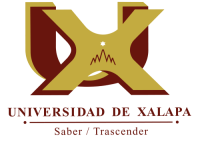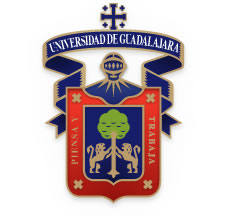The Partnership of the MDinGBV Project is composed of eleven partners, under the coordination of University of Ljubljana. More specifically, the Project team includes the following partners, and the used abbreviations throughout the project will be as such:
University of Ljubljana
University of Ljubljana – University of Ljubljana is the oldest and largest higher education and scientific research institution in Slovenia. University with its rich tradition was founded in 1919. The University of Ljubljana is renowned for its quality social and natural sciences and technical study programmes, structured in accordance with the Bologna Declaration. The University takes a central pedagogical position by performing public services in the areas of special social importance which ensure the preservation of the national identity.

University of Alicante
University of Alicante – The University of Alicante was created in October 1979 on the structure of the University Study Centre (CEU), which was started in 1968. It is an open, responsible and transparent university that encourages participation and the reuse of open data with effective support of Information Technology (IT)

University of Ioannina
The University of Ioannina, founded in 1964, is a leading public academic institution in Northwestern Greece. With 11 schools and 23 departments, the University offers a wide range of undergraduate and postgraduate programs across sciences, humanities, engineering, health sciences, and the arts. Committed to excellence in research and teaching, it hosts over 20,000 students and maintains strong links with international institutions through collaborations, mobility programs, and joint research projects. Located in the city of Ioannina, a vibrant cultural and educational hub, the University combines tradition with innovation, aiming to contribute actively to the academic, social, and economic development of the region and beyond.

4-Elements NGO
Four Elements is a Non-Profit, Non-Governmental Organization (NGO), certified by both the Ministry of Foreign Affairs and the Ministry of Health. It is an innovative and pioneering Greek organization that focuses on issues pertaining to:
Social inclusion, Gender equality, Employability and equal opportunities, Scientific research and the development of know-how in social policy issues, Education and capacity building. Four ELEMENTS mission is to contribute towards sustainable development and efficient utilization of all available resources in society for creating better living environments.

Universidad de Medellin
Universidad de Medellin – The Universidad de Medellin (UdeMedellin), is a private higher education institution, located in Medellin, Antioquia. Founded on February 1st, 1950, it has more than 13.000 students in 26 undergraduate programs, with 35 specialization programs, 22 master’s programs, and 6 PhD programs. UdeMedellin has prioritized its internationalization process to develop capacities and strengthen its academic, research and social service activities through collaboration, through alliances and special projects. Likewise, in its mission and vision, the priority given by the University to the Internationalization of Higher Education is reflected, which shows as a result the yearly strengthening of student and teacher mobility.

University of Magdalena
University of Magdalena – The University of Magdalena is a state-level public university whose headquarters are in the city of Santa Marta, capital of the Magdalena state, Colombia. It is a low-performing department (state) in all development indicators (Colombian Caribbean region), and it is considered to be a remote area. Its campus is considered one of the largest and most environmentally sustainable ones in the Colombian Caribbean Region, thanks to best practices and natural reserve areas such as the tropical dry forest within its premises. It is the oldest Higher Education Institution in Magdalena and the only public one, with a strong social vocation and the most comprehensive academic offering and nation-wide recognition thanks to its active role in research and innovation, and engagement in the development of the region. It received high-quality institutional accreditation from the Ministry of National Education, being the second public university in the Caribbean region to receive this distinction.

Universidad Autonoma de San Luis Potosi
Universidad Autonoma de San Luis Potosi – Universidad Autonoma de San Luis Potosi (UASLP) is located in San Luis Potosi in Mexico and the main sector of activity is the promotion and defence of human rights. The University has a Master’s Program in Human Rights of the Autonomous University of San Luis Potosí, or MDH by its acronym in Spanish (Master’s Degree in Human Rights). It is a multidisciplinary and multi-agency program, where the participating agencies are the Faculty of Law, the Faculty of Psychology, and the Coordination of Social Sciences and Humanities. The basic core of the MDH faculty is made up mainly of full-time professors from these departments, and from others, such as the Faculty of Economics and the Huasteca Zone Unit. In addition, there is extensive teaching mobility with other national universities, and universities in Argentina, Brazil, Ecuador, and Spain.

Universidad de Xalapa
Universidad de Xalapa – Universidad de Xalapa is a new comer institution. The university of Xalapa has connections with other universities and associations that can bring complimentary support to the project and can foster its dissemination and scope. The University is participating in the Network of Women for Social Entrepreneurship. This network is an effort from 8 different countries in Latin America to build research, innovation programs and awareness on the gender perspective throughout our universities and governments.

University of Guadalajara
University of Guadalajara – The University of Guadalajara (Udg) is a public, autonomous, comprehensive research University system in the State of Jalisco. It combines an international scope and vision with a strong commitment to society. At the present, it has 17 university centres across the state. One of those campuses is CUCEA, which is located in the Metropolitan Area of Guadalajara. CUCEA is an ecosystem for economic and administrative education that fosters innovation, research, entrepreneurship and social commitment. Students are prepared comprehensively in a global environment and encouraged to develop their critical thinking, creativity, leadership and responsibility, in order to provide solutions to the social, economic, environmental and productive problems of the state of Jalisco, Mexico and the world.

Universidad Peruana Cayetano Heredia
Universidad Peruana Cayetano Heredia – The Universidad Peruana Cayetano Heredia is in Peru, and it is an important actor in the national educational scenario. Its fundamental purpose is to turn people into agents of scientific, technological, social and environmental change through lifelong education. It trains professionals with social and ethical commitment, who provide integral solutions of impact with a solid research base and respect for diversity and the environment, both in terms of undergraduate, graduate, specialization and continuing education. It ensures academic excellence through a continuous process of educational quality, which renews educational models and acts in accordance with the evolution of global challenges to incorporate new disciplines, thus offering a cutting-edge and comprehensive training that includes culture, art and sports.

Pontifical Catholic University of Peru
Academic rigour, the plurality of scientific and humanistic perspectives, Catholic ethical values and principles, a culture of discrepancy and tolerance, and a commitment to the development of Peru and its people define the character of the Pontifical Catholic University of Peru (PUCP).
Our model seeks to serve the country and the world through the comprehensive education of our students, the development of knowledge and our commitment to society. Founded in 1917, the Pontificia Universidad Católica del Perú is the oldest-established private, non-profit, higher educational institution in Peru.
With a strong research orientation, consistently striving to enhance its standing as a world-class institution, PUCP has been recognized in several international rankings as one of the top universities in Latin America, and the best in several fields of study in Peru.
PUCP is committed to integrating a gender perspective to foster an inclusive, tolerant community that respects diversity and promotes open dialogue in pursuit of a more just and equal society. Through education, research and engagement with society, it aims to recognize the gender system and norms that perpetuate violence, discrimination and exclusion and to generate knowledge aimed at preventing and eliminating them.









